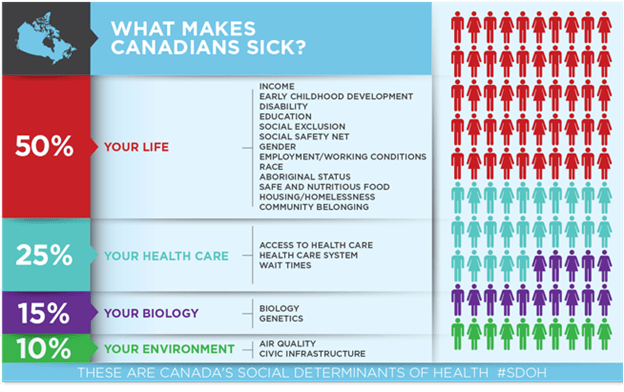US unveils plan to address 'silent killer' extreme heat
Mon., September 20, 2021,

WASHINGTON (AP) — The Biden administration is moving to protect workers and communities from extreme heat after a dangerously hot summer that spurred an onslaught of drought-worsened wildfires and caused hundreds of deaths from the Pacific Northwest to hurricane-ravaged Louisiana.
Under a plan announced Monday, the U.S. Departments of Labor and of Health and Human Services as well as other federal agencies are launching actions intended to reduce heat-related illness and protect public health.
White House climate adviser Gina McCarthy called heat stress a “silent killer” that disproportionately affects the poor, elderly and minority groups. While not as dramatic as wildfires or hurricanes, “heat stress is a significant, real threat that has deadly consequences,″ McCarthy said in an interview.
“Many people don’t recognize that heat stress is a real physical problem until it’s too late for them,″ she said.
The effort to address heat stress comes as President Joe Biden is working with world leaders to hammer out next steps against rapidly worsening climate change.
A June heat wave in the Pacific Northwest, exacerbated by climate change, caused hundreds of deaths and thousands of emergency room visits for heat-related illnesses, In Louisiana, more than a million people, including the entire city of New Orleans, lost power when Hurricane Ida struck on Aug. 29. At least 12 of the 28 Ida-related deaths in Louisiana were caused by heat, according to the Louisiana Health Department.
As part of the administration's plan, the Labor Department is launching a program to protect outdoor workers, including agricultural, construction and delivery workers, as well as those working indoors in warehouses, factories and kitchens. Farm and construction workers are at greatest risk of heat stroke and other problems, the White House said, but other workers lacking climate-controlled environments also face risks.
"Rising temperatures pose an imminent threat to millions of American workers exposed to the elements, to kids in schools without air conditioning, to seniors in nursing homes without cooling resources, and particularly to disadvantaged communities,'' Biden said in a statement.
"As with other weather events, extreme heat is gaining in frequency and ferocity due to climate change, threatening communities across the country,'' Biden added, citing National Weather Service data that extreme heat is now the leading weather-related killer in America.
Labor’s Occupational Safety and Health Administration, or OSHA, is set to issue a new rule on heat illness prevention in outdoor and indoor work settings and will focus interventions and workplace inspections on days when the heat index exceeds 80° F (26.7 degrees Celsius). The White House called the rule a significant step toward a federal heat standard in U.S. workplaces and said officials will expand the scope of scheduled and unscheduled inspections to address heat-related hazards.
The administration also will expand its Low Income Home Energy Assistance Program, or LIHEAP, to add programs to address extreme heat, the White House said. The program traditionally focuses on providing heat during winter weather, but also offers help with purchasing air conditioning units or paying electric bills for cooling assistance. Those programs will be expanded, and officials will conduct targeted outreach to ensure at-risk households are in a safe temperature environment, McCarthy said.
The administration is expanding the use of schools and other public buildings as cooling centers.
“School cooling centers save lives,'' McCarthy said. "They are opportunities for people in every community to actually find relief at a time when they need it most.''
She urged communities to implement programs such as “adopt a senior citizen” to conduct wellness checks, making sure that elderly residents are drinking fluids and not overheating. "That kind of personal touch is going to be the difference between an individual living longer and those that are passing away, basically unrecognized in their own homes,'' McCarthy said.
The Biden administration has taken steps since its first days in office to tackle climate change.
Biden on Friday announced a pledge with the European Union to cut climate-wrecking methane leaks. Increasingly grim findings from scientists conclude that the world is nearing the point where the level of climate damage from burning oil, gas and coal becomes catastrophic and irreversible.
Those accounts “represent a code red for humanity,” Biden said Friday, citing a recent U.N. report that Earth is getting so hot that temperatures in about a decade will probably blow past a level of warming that world leaders have sought to prevent.
"We have to act, and we have to act now,'' Biden said, evoking the “damage and destruction” he has seen in the United States, massive flooding in Europe and other global damage from the warming climate as natural disasters increase in number and severity.
In the past few weeks, Biden has visited California, where firefighters are battling larger, fiercer and deadlier wildfires almost year-round, as well as the northeastern U.S. and Gulf Coast, where Hurricane Ida and its flooding killed scores of people.
As part of the new effort, the administration is focusing on urban “heat islands” where temperatures in cities with fewer trees and higher pavement concentrations can be higher than in surrounding areas. The problem can be more severe in neighborhoods affected by discriminatory practices that deny services to residents of certain areas based on their race or ethnicity, the White House said, citing a recent analysis by the Environmental Protection Agency showing that severe harms from climate change fall disproportionately on minorities and underserved communities.
The administration will expand urban forestry programs and other “greening” projects to reduce extreme temperatures and heat exposure, the White House said. The Department of Homeland Security, meanwhile, is launching a series of prize competitions focused on strengthening the nation’s resilience to climate change. The first competition will focus on new ways to protect people at risk of heat-related illness or death during extreme heat events or in connection with other disasters.
Matthew Daly, The Associated Press
Mon., September 20, 2021,

WASHINGTON (AP) — The Biden administration is moving to protect workers and communities from extreme heat after a dangerously hot summer that spurred an onslaught of drought-worsened wildfires and caused hundreds of deaths from the Pacific Northwest to hurricane-ravaged Louisiana.
Under a plan announced Monday, the U.S. Departments of Labor and of Health and Human Services as well as other federal agencies are launching actions intended to reduce heat-related illness and protect public health.
White House climate adviser Gina McCarthy called heat stress a “silent killer” that disproportionately affects the poor, elderly and minority groups. While not as dramatic as wildfires or hurricanes, “heat stress is a significant, real threat that has deadly consequences,″ McCarthy said in an interview.
“Many people don’t recognize that heat stress is a real physical problem until it’s too late for them,″ she said.
The effort to address heat stress comes as President Joe Biden is working with world leaders to hammer out next steps against rapidly worsening climate change.
A June heat wave in the Pacific Northwest, exacerbated by climate change, caused hundreds of deaths and thousands of emergency room visits for heat-related illnesses, In Louisiana, more than a million people, including the entire city of New Orleans, lost power when Hurricane Ida struck on Aug. 29. At least 12 of the 28 Ida-related deaths in Louisiana were caused by heat, according to the Louisiana Health Department.
As part of the administration's plan, the Labor Department is launching a program to protect outdoor workers, including agricultural, construction and delivery workers, as well as those working indoors in warehouses, factories and kitchens. Farm and construction workers are at greatest risk of heat stroke and other problems, the White House said, but other workers lacking climate-controlled environments also face risks.
"Rising temperatures pose an imminent threat to millions of American workers exposed to the elements, to kids in schools without air conditioning, to seniors in nursing homes without cooling resources, and particularly to disadvantaged communities,'' Biden said in a statement.
"As with other weather events, extreme heat is gaining in frequency and ferocity due to climate change, threatening communities across the country,'' Biden added, citing National Weather Service data that extreme heat is now the leading weather-related killer in America.
Labor’s Occupational Safety and Health Administration, or OSHA, is set to issue a new rule on heat illness prevention in outdoor and indoor work settings and will focus interventions and workplace inspections on days when the heat index exceeds 80° F (26.7 degrees Celsius). The White House called the rule a significant step toward a federal heat standard in U.S. workplaces and said officials will expand the scope of scheduled and unscheduled inspections to address heat-related hazards.
The administration also will expand its Low Income Home Energy Assistance Program, or LIHEAP, to add programs to address extreme heat, the White House said. The program traditionally focuses on providing heat during winter weather, but also offers help with purchasing air conditioning units or paying electric bills for cooling assistance. Those programs will be expanded, and officials will conduct targeted outreach to ensure at-risk households are in a safe temperature environment, McCarthy said.
The administration is expanding the use of schools and other public buildings as cooling centers.
“School cooling centers save lives,'' McCarthy said. "They are opportunities for people in every community to actually find relief at a time when they need it most.''
She urged communities to implement programs such as “adopt a senior citizen” to conduct wellness checks, making sure that elderly residents are drinking fluids and not overheating. "That kind of personal touch is going to be the difference between an individual living longer and those that are passing away, basically unrecognized in their own homes,'' McCarthy said.
The Biden administration has taken steps since its first days in office to tackle climate change.
Biden on Friday announced a pledge with the European Union to cut climate-wrecking methane leaks. Increasingly grim findings from scientists conclude that the world is nearing the point where the level of climate damage from burning oil, gas and coal becomes catastrophic and irreversible.
Those accounts “represent a code red for humanity,” Biden said Friday, citing a recent U.N. report that Earth is getting so hot that temperatures in about a decade will probably blow past a level of warming that world leaders have sought to prevent.
"We have to act, and we have to act now,'' Biden said, evoking the “damage and destruction” he has seen in the United States, massive flooding in Europe and other global damage from the warming climate as natural disasters increase in number and severity.
In the past few weeks, Biden has visited California, where firefighters are battling larger, fiercer and deadlier wildfires almost year-round, as well as the northeastern U.S. and Gulf Coast, where Hurricane Ida and its flooding killed scores of people.
As part of the new effort, the administration is focusing on urban “heat islands” where temperatures in cities with fewer trees and higher pavement concentrations can be higher than in surrounding areas. The problem can be more severe in neighborhoods affected by discriminatory practices that deny services to residents of certain areas based on their race or ethnicity, the White House said, citing a recent analysis by the Environmental Protection Agency showing that severe harms from climate change fall disproportionately on minorities and underserved communities.
The administration will expand urban forestry programs and other “greening” projects to reduce extreme temperatures and heat exposure, the White House said. The Department of Homeland Security, meanwhile, is launching a series of prize competitions focused on strengthening the nation’s resilience to climate change. The first competition will focus on new ways to protect people at risk of heat-related illness or death during extreme heat events or in connection with other disasters.
Matthew Daly, The Associated Press













